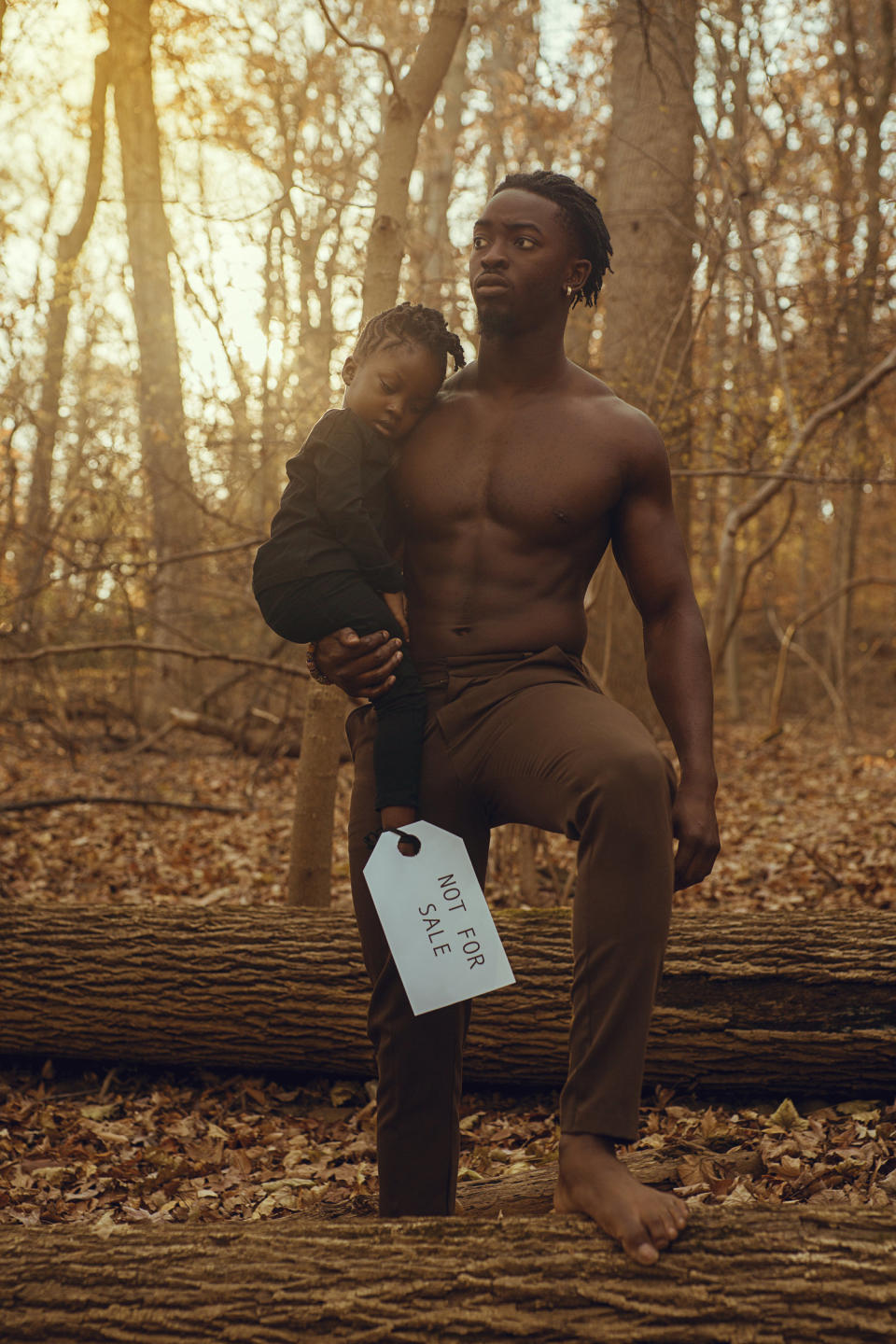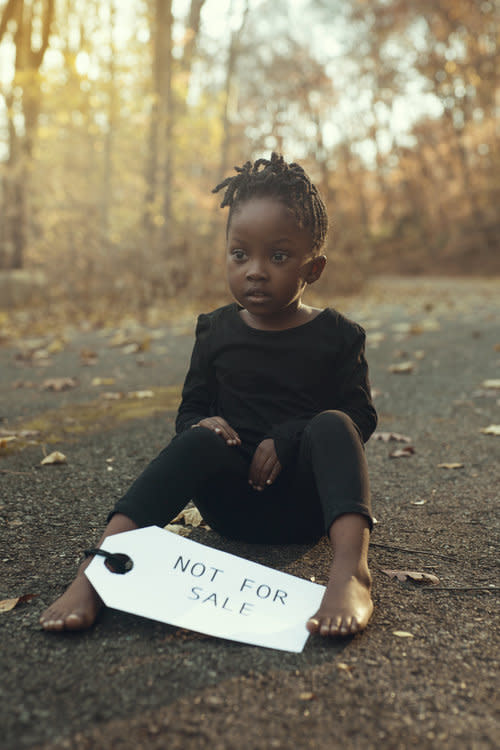Models wear 'not for sale' tags to protest Libya slave trade crisis in powerful photo shoot
When CNN reported that there is modern-day slavery in Libya, where migrants are being sold for roughly $400 each, many people across the world wanted to do something to help but did not know how. However, 23-year-old photographer Kofi Dua knew that he needed to use his art to spread awareness of this issue.

The location was a forest. The models posed as father and daughter wearing brown and black garments. They were barefoot with a pale blue sign that read, “Not for sale.”
“I got my inspiration from the news feed and social media. I felt like to create better awareness of the problem, I had to do a PSA [public service announcement] editorial to start up the conversation,” Dua tells Yahoo Lifestyle.

Dua has definitely started a conversation. His photo has been reposted in several Instagram accounts and has been liked over 6,600 times. He captioned the photo on his social media, “WE ARE NOT FOR SALE! All lives must be cherished and valued. It is our duty to stand for injustice and hold people responsible for their actions. We are not for sale. We shall not go backwards but forward.”
Libya is the main transit point for migrants trying to reach Europe by sea. According to the United Nation’s International Organization for Migration (IOM), since 2014, more than 150,000 people have made the dangerous crossing over the Mediterranean Sea from Libya, in search of a better life. An estimated 3,000 refugees have died while attempting the journey.
Along with the powerful images, a video accompanies the PSA. The song used is “Libya” by Shatta Wale, which was also composed in protest of the slave trade in the country.
Dua, who was born in Ghana but moved to the U.S. five years ago, graduated from college with a graphic design and advertising degree. He currently resides in New York.
He says he feels proud that his work has helped, even if it is in a small way, to raise awareness of the crisis.
“I felt I really executed it really well and it has crossed boundaries, and I have people from all over the world posting and starting the conversation with the image,” he says.

The models in the editorial were adorable 4-year-old Mylah Shyv and singer Kwasi Opoku, 24.
“As human beings, Africans, minorities, etc., we are not for sale,” Opoku tells Yahoo Lifestyle. “We are taking back our power. We must stand proud and say no to the injustices of the world. We will fight back, and we must fight back. The issue in Libya is much deeper to me than the act of selling human beings into slavery, but it is also an issue of worth in this world.”
Mylah’s mother, Kristin Nimoh, shares with Yahoo Lifestyle why it was important for her to let daughter participate in the editorial: “I wanted her to look at this picture one day in the future and feel empowered and know that as a young minority in America, she was able to make an impact in this world. These are things I plan on teaching her as she continues to grow, ” she says.
Nimoh continues: “As human beings, we are responsible for one another. When one group of people are hurting, we are all hurting, and that it is important to stand united because what is wrong is wrong regardless of the time zone, ZIP code, race, or gender.”
Read more from Yahoo Lifestyle:
•The most pivotal moments for women in 2017
•Meet 8 models whose careers took off thanks to social media
•Why Adriana Lima and Emily Ratajkowski can both be feminists, no matter how much skin they show
Follow us on Instagram, Facebook, and Twitter for nonstop inspiration delivered fresh to your feed, every day.

